Mission to Moscow

Brief Synopsis
Cast & Crew
Michael Curtiz
Walter Huston
Ann Harding
Oscar Homolka
George Tobias
Gene Lockhart
Film Details
Technical Specs

Synopsis
In 1936, progressive corporate lawyer Joseph E. Davies is called away from a vacation by President Franklin D. Roosevelt, who appoints him ambassador to the Soviet Union. On the way to Russia with his wife Marjorie and daughter Emlen, Davies stops in Germany, where he witnesses firsthand the country's military build-up. By the time Davies leaves Germany, he is convinced that Hitler's government is determined to go to war. On arrival in Moscow, Davies is greeted by Mikhail Kalinin, the chairman of the All-Union Central Executive Committee of the Soviet Union. During their meeting, Davies makes it clear that although he is a confirmed capitalist, he intends to keep an open mind and see as much as he can before making his report. In order to accomplish this, Davies travels throughout the country. He visits a tractor factory where tractors that can be quickly converted to tanks are manufactured, as well as the Kneiper Dam; a steel plant; oil fields near the Caspian Sea; coal mines and cooperative farms. Davies is impressed by the rapid pace of Russian industrialization. Along the way, he also hears stories of sabotage. While Davies is gone, Marjorie visits the wife of Soviet premiere Molotov, who heads the cosmetic industry, and learns that many Soviet wives hold down jobs. On his return, Davies gives his impressions of what he has seen to Molotov and Maksim Litvinov, the Russian delegate to the League of Nations, who had argued futilely in favor of a united front against the fascists after the Italian invasion of Ethiopia. In 1937, Joseph Stalin, head of the Communist party, orders a purge of the army. During the trial, faithfully attended by Davies, many of the arrested men confess to crimes against the Soviet state that were masterminded by Leon Trotsky, who is living outside the country. They testify that Trotsky planned to aid a fascist invasion of the U.S.S.R. and then overthrow the weakened Soviet government. Although other countries are outraged by the purge, Davies believes that the testimony is truthful. On May Day, 1938, the Davieses witness an impressive display of Russian military might. Later, the Chinese ambassador takes Davies to see some of the people wounded by the Japanese in the recent attacks on Shanghai. Many of the wounded, who are being cared for in Russian hospitals, are women and children. Davies' appointment comes to an end and, during his farewell dinner, he learns that Hitler has invaded Austria and is threatening Czechoslovakia. Before Davies leaves, Stalin explains to him that reactionary elements in England are encouraging Germany to invade Russia and warns that if the anti-fascists do not band together to stop Hitler, the Soviet government will be forced to sign a non-aggression pact with Germany in order to gain time to amass its military force. On his way back to America, Davies meets with Winston Churchill, an important figure in the British government, asking him to encourage a stand against Hitler. At a meeting in Munich in September 1938, however, Prime Minister Neville Chamberlain sanctions Hitler's dismemberment of Czechoslovakia. In the United States, convinced that war will come, Davies asks the government to amend the Neutrality Act of 1937. The U.S. senators, however, do not believe that Hitler has the military strength to beat England and France. Events prove them wrong, and after the Nazi invasion of Russia and the fall of Paris, Davies travels through the U.S. carrying his message to the people, but fails to convince many Americans, who see the war as a chance to make a profit. On 7 December 1941, however, Japan bombs Pearl Harbor and the Russians and the United States become allies.

Director

Michael Curtiz
Cast

Walter Huston

Ann Harding

Oscar Homolka

George Tobias

Gene Lockhart

Eleanor Parker

Richard Travis

Helmut Dantine
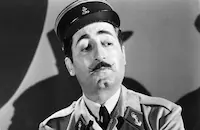
Victor Francen
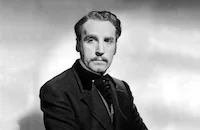
Henry Daniell
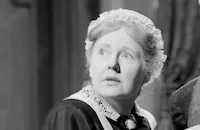
Barbara Everest
Dudley Field Malone

Roman Bohnen

Maria Palmer

Moroni Olsen

Minor Watson

Vladimir Sokoloff
Maurice Schwartz

Frieda Inescort
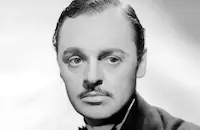
Jerome Cowan
Konstantin Shayne
Manart Kippen
Kathleen Lockhart
Kurt Katch
Felix Basch

Frank Puglia

John Abbott
Charles Trowbridge
Leigh Whipper
Georges Renevant
Clive Morgan
Alex Chirva
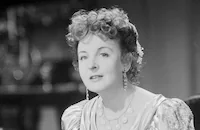
Doris Lloyd
Olaf Hytten
Art Gilmore
Don Clayton
Duncan Renaldo
Nino Bellini
Ferdinand Schumann-heink
Rolf Lindau
Peter Michael
George Davis
Jean Del Val
Emory Parnell
Pat O'malley
Mark Strong
Albert D'arno
Rudolf Steinbeck
Richard Ryen
Dr. Ernest Golm
Gino Corrado

Glen Strange
Oliver Cross
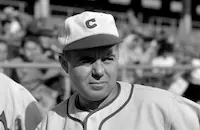
Ray Walker
Jack Young
Ernst Hausserman
Frank Faylen
John Maxwell

Joseph Crehan
Ross Ford

Warren Douglas
George Lessey
Wallis Clark
Hans Schumm
Lisa Golm
Henry Victor
Louis Arco
Alfred Zeisler
Erwin Kalser

Pierre Watkin

Edward Van Sloan
Esther Zeitlin
Nina Blagoi
Tanya Somova
Nikolai Gelikhovsky
Michael Visaroff
Sam Savitsky
Nick Kobliansky
Gabriel Leonoff
Alex Akimoff
George Gleboff
Mike Tellegan
Adia Kuznetzoff
Demetrius Alexis
Henry Guttman
Robert Baikoff
Mischa Westfall
Elizabeth Archer
Rosa Margot
Valya Terry
Sandor Szabo
Lala Detolly
Ivan Triesault
Daniel Ocko
David Hoffman
Lumsden Hare
Peter Chong
Robert C. Fischer
Charles La Torre
Alex Caze
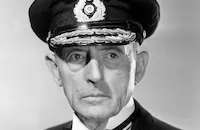
Frank Reicher
Leonid Snegoff
Edgar Licho
Marie Melesh
Michael Mark
Martin Noble
Lee Tung-foo
Victor Wong
Luke Chan
Allen Chan
John Dilson
Jean Debriac
George Sorel
Ted E. Jacques
Billy Louie
Loulette Sablon
Marion Lessing
Joan Winfield
Tina Menard
Peggy Watts
Irene Pedrini

Louis Jean Heydt

John Hamilton
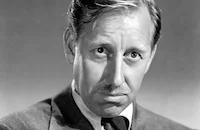
Frank Ferguson
Bill Kennedy
William Forrest
Alex Melesh
Marek Windheim
Ivan Lebedeff
Gregory Golubeff
Jack Gardner
Sam Goldenberg
Egon Brecher
Zina Torchina
Vera Richkova
Jean Wong
Irina Semochenko
Christine Gordon

Alexander Granach
Joseph Kamaryt
Baroness Yvonne Hendricks
Tamara Shayne
Olga Uljanovskaja
Patricia Fung
Igor Denavrotsky

James Flavin

William B. Davidson
Herbert Heyes
George Carleton
Francis Pierlot
Forbes Murray
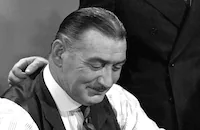
Edward Keane
William Gould

Harry Cording
Zoia Karabanova
Arthur Loft
Alec Campbell

Mike Mazurki
Noel Cravat
Nicco Romoff

Tom Tully

Robert Shayne
Lionel Royce
Emil Rameau
Eugene Borden
Feodor Chaliapin
Jacqueline Dalya
Herbert Ashley
Oliver Prickett
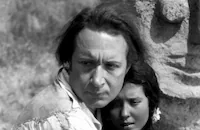
Monte Blue
Frank Penny
Ernie Adams

Eddie Kane
Eddie Cobb
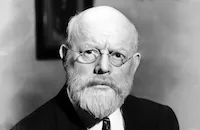
Howard Mitchell
Frank Wayne
Jack Kenny
Ben Erway
Mauritz Hugo

Gene Gary
Frank Jacquet
Fred Essler
John Wengraf
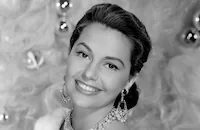
Lily Norwood
Mischa Panaieff
Frank Hemphill
Glen Walters
Betty Roadman
Al Kunde
Hooper Atchley
Evelynne Smith
Eugene Eberle
Barbara Brown
Isabel Withers
Crew
Gordon Bau
Robert Buckner
Roy Davidson
Leo F. Forbstein
Oliver S. Garretson
Bert Glennon
Frank Heath
George James Hopkins
Bernard Kaun
Don King
Howard Koch
H. F. Koenekamp
James Leicester
Jay Leyda
Owen Marks
Orry-kelly
Leroy Prinz
Don Siegel
Max Steiner
Jack L. Warner
Carl Jules Weyl

Film Details
Technical Specs

Award Nominations
Best Art Direction
Articles
Mission to Moscow
Among the many films produced by Hollywood for the wartime effort, Mission to Moscow (1943) stands out for the boldness and controversial nature of its message, as well as its unique attempt to recreate recent history in fictionalized form. The book, which was compiled from diary entries, letters and official reports, became a surprise bestseller upon its initial publication. Easily the most controversial aspect of it--carried over in the film--remains its defense of the infamous 1936-38 Moscow show trials, during which a number of highly placed officials within the Soviet government were accused of collaborating with the exiled political figure Leon Trotsky to undermine the Soviet regime through acts of treason and sabotage, including the 1934 assassination of Stalin’s potential rival Sergei Kirov. Although he expressed reservations about the trials, Davies stated that the confessions appeared genuine, concluding: “To have assumed that this proceeding was invented and staged as a project of dramatic political fiction would be to presuppose the creative genius of a Shakespeare and the genius of a Belasco in stage production.” Nonetheless, many commentators at the time argued that the trials were staged and still do so today. It is widely believed, for instance, that Stalin himself was behind the assassination of Kirov.
One of the chief difficulties that Warner Brothers and director Michael Curtiz faced was that of casting actors in the roles of prominent and very much living public figures. It is very odd indeed to see Joseph E. Davies himself introducing the film, followed immediately by a scene with Walter Huston as Davies writing the book. The Forties character actor Manart Kippen is often lauded for his remarkable resemblance to Stalin, though he is arguably no match for Mikheil Gelovani, a native Georgian who began playing Stalin in various Soviet films starting in the late Thirties, culminating in the monumental late Stalin-era propaganda features The Fall of Berlin (1949) and The Unforgettable Year 1919 (1952). The actor playing President Roosevelt, in contrast, is barely shown at the beginning of Mission to Moscow and even then is largely off-screen.
While the film was necessarily studio-bound, Warner Brothers exercised an unusual degree of care to create an aura of authenticity. The technical advisor on the film, Jay Leyda, was a noted film scholar who studied in Moscow during the 1930s under Sergei Eisenstein and thus had firsthand knowledge of the Soviet Union. Leyda later wrote classic histories of the Soviet and Chinese cinemas. In recognition of its meticulous recreation of Russian locations, the film received an Academy Award nomination for Best Art Direction (Carl Weyl and George James Hopkins).
Given the inherent logistical difficulties in casting a film of this sort, it is hardly surprising that Mission to Moscow is a hodgepodge of foreign accents. There are many native Russian speakers in the film, most prominently among them Vladimir Sokoloff as President Kalinin--but Russian-speaking viewers will most likely snicker at Frieda Inescort's mangled attempt at the language as Madame Molotov. More credibly, Austrian-born actor Oskar Homolka played Maxim Litvinov and fellow Austrian Helmut Dantine played Major Kamenev, while Belgian actor Victor Francen played Vyshinsky. Incidentally, look for the young Cyd Charisse in a bit part as a ballet dancer.
The film's sympathetic view of the Soviet Union stirred considerable debate upon its release. Bosley Crowther of the New York Times, far from complaining about the film's propagandistic qualities, praised it for "a boldness unique in film ventures, which usually evade all issues, it comes out sharply and frankly for an understanding of Russia's point of view." He added that "[...] it has no hesitancy whatever in stepping on a few tender toes." At the same time, he criticized the film for overlength and excessive reliance on dialogue, which he felt came from its dependency on the book.
In many other publications, reviewers attacked the film as propaganda, especially for its glorification of a "totalitarian" regime. Most notably, in the May 9 issue of the New York Times, the noted philosopher John Dewey and his colleague Susanne La Follette, a news editor, published a lengthy letter to the Editor characterizing the film as "totalitarian propaganda for mass consumption." In particular, they complained about the film's liberties with the purge trials and its refusal to recognize the sheer scale of the purges, which affected every level of Soviet society. They also noted the film's "subtly anti-British" bias and accused it of a "sinister totalitarian critique of the parliamentary system." In their conclusion, Dewey and La Follette described Mission to Moscow as a "major defeat for the democratic cause" and even compared it to Hitler's "method of confusing public opinion through propaganda." The scholar Arthur Upham Pope rebutted many of Dewey and La Follette's accusations, sparking a sharply-worded reply from Dewey and La Follette. Upon its New York release Mission to Moscow broke house box office records at the Hollywood Theatre, while in Boston the City Council asked to have it banned.
Howard Koch, the film's screenwriter, answered the widespread accusations in a New York Times column dated May 27 and published on June 13. While conceding that the film may have presented Davies as too readily adopting a rosy view of the Soviet Union, he defended his decision to condense the purge trials for dramatic purposes and insisted that the defendants' confessions came from "an authenticated transcript of the trial." He also maintained that his depictions of the Soviet occupation of Finland, the English and French governments' reluctance to aid the Soviet Union, and the conservative American Congressional critics of Roosevelt were supported by the historical record. In addition to the classic Casablanca (1942), Koch was also known for his scripts for the patriotic wartime films Sergeant York (1941) and In Our Time (1944). However, his work on Mission to Moscow would later attract the scrutiny of the House Un-American Activities Committee, who accused him of being a communist sympathizer and had him blacklisted. It is a mark of how politically turbulent the Forties and Fifties truly were that the very same film, allegedly produced by Warner Brothers at the suggestion of President Roosevelt to serve the immediate wartime needs of the state, would later serve as evidence by that same state against lowly Hollywood scriptwriters.
Producer: Robert Buckner
Director: Michael Curtiz
Script: Howard Koch, based on the 1941 book by Joseph E. Davies
Photography: Bert Glennon
Music: Max Steiner
Editing: Owen Marks
Art Direction: Carl Jules Weyl
Set Decoration: George James Hopkins
Technical Advisers: Don Siegel, Jay Leyda
Cast: Joseph E. Davies (as himself in Prologue), Walter Huston (Joseph E. Davies), Ann Harding (Mrs. Davies), Oskar Homolka (Maxim Litvinov), George Tobias (Freddie), Gene Lockhart (Vyacheslav Molotov), Frieda Inescort (Madame Molotov), Eleanor Parker (Emlen Davies), Richard Travis (Paul Grosjean), Victor Francen (Vyshinsky), Henry Daniell (Minister Joachim Von Ribbentrop), Barbara Everest (Mrs. Ivy Litvinov), Dudley Field Malone (Prime Minister Winston Churchill), Roman Bohnen (Krestinsky), Maria Palmer (Tanya Litvinov), Moroni Olsen (Colonel Faymonville), Minor Watson (Loy Henderson), Vladimir Sokoloff (Mikhail Kalinin), Konstantin Shayne (Nikolai Bukharin), Manart Kippen (Joseph Stalin).
BW-124m. Closed captioning.
by James Steffen

Mission to Moscow
Quotes
Trivia
Notes
Joseph E. Davies, a lawyer, was the first chairman and then vice-chairman of the Federal Trade Commission. From 1936-38, he was the United States ambassador to Russia, and from 1938-39, ambassador to Belgium. He was married to cereal heiress Majorie Post. His name appears above the title in the film's credits. News items in Hollywood Reporter add the following information about the production: The filmmakers made an effort to find actors who resembled the real-life characters they were portraying. Olivia De Havilland was tested for the role of "Marjorie Davies." Press releases announced that Pat O'Brien was to play "Father Leopold Braun," a Catholic priest, and Irene Manning was to portray a singer at the Moscow Opera House. Neither appeared in the completed film. According to modern sources, Davies wanted Fredric March to play the lead. Press releases included in the file on the film at the AMPAS Library note that Erskine Caldwell wrote the first draft of the screenplay. His contribution to the final film has not been determined, however. Some scenes were shot on location at Lasky Mesa, CA. After a warm initial reception, the film was promoted with a $500,000 advertising budget, which Hollywood Reporter claimed was unprecedented.
Although Variety lauded the film calling it "Hollywood's initial effort at living history," Mission to Moscow was criticized by many anti-Stalinists who were disturbed by the favorable depiction of the Soviet Union in the film. The scenes depicting Stalin's purge trials were the subject of great controversy, despite Davies' claims to have studied an actual transcript of the trial. According to the Variety review, the actors spoke "exact words of the confessions of guilt made by the leaders later executed." In an open May 1943 letter, contained in the file on the film at the AMPAS Library, critics of the picture stated: "The current movie Mission to Moscow raises a most serious issue; it transplants to the American scene the kind of historical falsifications which have hitherto been characteristic of total propaganda...." The accompanying statement charges that the film "falsifies history and even distorts the very book on which it is based. One of the chief purposes of the film is to present the Moscow Trials of 1936-38 as the just punishment of proved traitors...[the film] glorifies Stalin's dictatorship and its methods...and has the most serious implications for American democracy." John Dewey, who had headed a commission of inquiry into the Moscow trials, published a letter in the May 9, 1943 issue of New York Times attacking the film as "the first instance in our country of totalitarian propaganda for mass consumption-a propaganda which falsifies history through distortion, omission or pure invention of facts." According to a June 1, 1943 Daily Variety news item, the Republican National Committee attacked the film as "New Deal propaganda" and hinted that the White House had shaped the picture. Others, including Herman Shumlin, in a June 1, 1943 letter to Walter White reprinted in a modern source, defended the film as "an instrument for understanding and friendship between the Allies." On November 12, 1943, U.S. Senator Sheridan Downey of California read a letter from Sergeant Phil Stern into the Congressional Record. Stern stated that a copy of a Nazi newspaper that he found on a dead German soldier contained charges against the film similar to those appearing in American newspapers. Stern objected to Americans attacking an ally whose soldiers "are stopping the same shrapnel, the same bullets, and the same booby traps used against Pvt. Johnny Smith in Italy."
The film's favorable depiction of the U.S.S.R. attracted the attention of the House of Representatives Committee on Un-American Activities during its 1947 hearings on Communist infiltration of Hollywood. It is possible that Howard Koch's participation in this film was a contributing factor to his subsequent Hollywood blacklisting. In his HUAC testimony on October 20, 1947, Jack L. Warner stated: "The picture was made when our country was fighting for its existence, with Russia as one of our allies. It was made to fulfill the same wartime purpose for which we made such other pictures as Air Force, This Is the Army...and a great many more. If making Mission to Moscow in 1942 was subversive activity, then the American Liberty ships which carried food and guns to Russian allies and the American naval vessels which convoyed them were likewise engaged in subversive activities. This picture was made only to help a desperate war effort and not for posterity...." For more information on the HUAC hearings, see entry above for Crossfire. Carl Weyl and George J. Hopkins were nominated for an Oscar for Best Art Direction-Interior Decoration.

Miscellaneous Notes
Released in United States 1943
Released in United States 1995
Released in United States 1995 (Shown at AFI/Los Angeles International Film Festival (Movie Marathon All Night: Left Wing versus Right Wing) October 19 - November 2, 1995.)
Released in United States 1943














